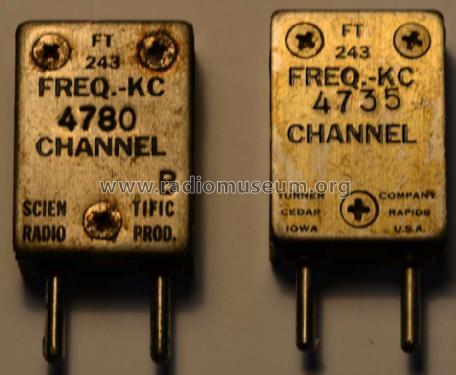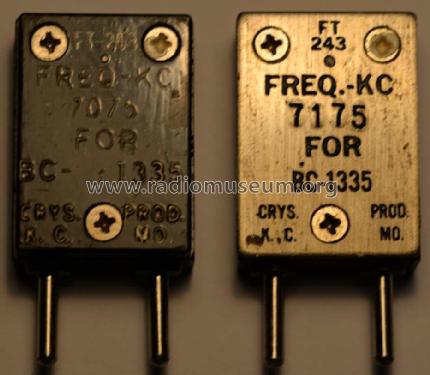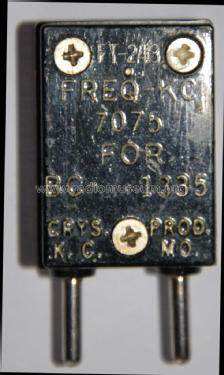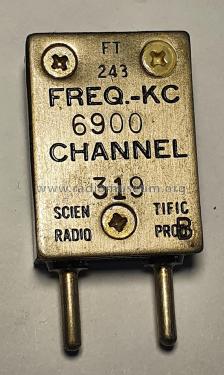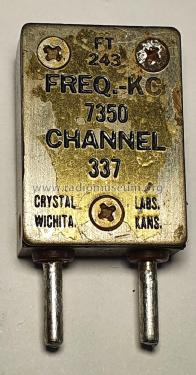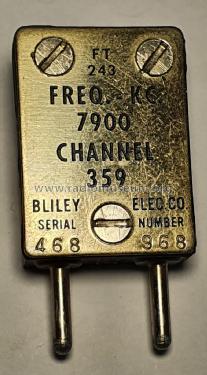Crystal holder - Quartz - Quarz FT243
MILITARY U.S. (different makers for same model)
- Land
- USA
- Hersteller / Marke
- MILITARY U.S. (different makers for same model)
- Jahr
- 1943–1964 ?
- Kategorie
- Radio-Bauteil (Einzelteil, keine Baugruppe)
- Radiomuseum.org ID
- 125717
- Material
- Spezielles Material - in den Bemerkungen beschrieben.
- von Radiomuseum.org
- Modell: Crystal holder - Quartz - Quarz FT243 - MILITARY U.S. different makers
- Form
- Diverse Formen, unter Bemerkung beschrieben.
- Abmessungen (BHT)
- 21 x 29 x 11 mm / 0.8 x 1.1 x 0.4 inch
- Bemerkung
- Steckquarze in Duroplastgehäusen, z.T. mit Metallfrontplatte, Frequenzbereich ca. 1 - 10 MHz, Kanalquarze f. Militär-Geräte, überwiegend in den USA produziert.
Crystal Holder, 2 pins, spaced 0.486" (12.3 mm) and pin diameter 0.093" (2.4 mm), pin length 3/8" (9.5 mm).
- Nettogewicht
- 0.018 kg / 0 lb 0.6 oz (0.04 lb)
- Autor
- Modellseite von Hans-Peter Bölke angelegt. Siehe bei "Änderungsvorschlag" für weitere Mitarbeit.
- Weitere Modelle
-
Hier finden Sie 402 Modelle, davon 354 mit Bildern und 211 mit Schaltbildern.
Alle gelisteten Radios usw. von MILITARY U.S. (different makers for same model)
Sammlungen
Das Modell Crystal holder - Quartz - Quarz befindet sich in den Sammlungen folgender Mitglieder.
Forumsbeiträge zum Modell: MILITARY U.S.: Crystal holder - Quartz - Quarz FT243
Threads: 1 | Posts: 4
The left x-tal is not a FT-243, but similar and it can be used in a BC-620 with 79 channels, 100 kHz separated, in the range 20,0-27,9 MHz. These FT-243 x-tals are numbered after their channel, so channel no.65 means the fundamental frequency of 7873,3 kHz multiplied by 3 + the IF frequency of 2880 kHz, giving a working frequency of 26500 kHz.
The middle and right x-tals were used in the BC-659 and BC-1335 with 120 channels, 100 kHz separated, in the range 27,0-38,9 MHz. These x-tals are numbered after their working frequency, devided by 100, so channel 292 means the fundamental frequency of 6225 kHz multiplied by 4 + the IF frequency of 4300 kHz, giving a working frequency of 29200 kHz.
Jan Terranea, 17.Jun.10






